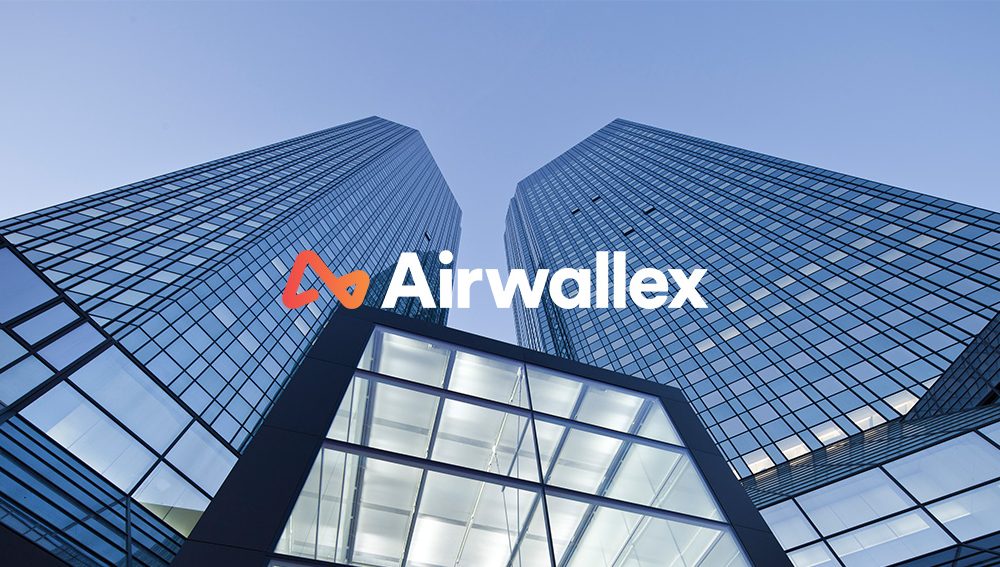Author: Jia Jia
Grab Announces A $988 Million Financial Loss In Q3 Due To A Drop In Ride-Hailing During Lockdowns
The Singapore unicorn expects its SPAC deal to finalize in Q4 of this year.
Grab, the Southeast Asian unicorn reported a net loss of $988 million for the July-September quarter, increased from a loss of $621 million a year earlier, as increased COVID-19 control measures in the area impacted its core ride-hailing business.
The Singaporean digital tech business, a significant startup in the area, offers ride-hailing, delivery, and banking services through what it calls a “superapp” approach.
Singapore, Malaysia, Indonesia, Vietnam, Thailand, the Philippines, Cambodia, and Myanmar are among the countries it operates.
On Thursday, Grab also stated that its proposed merger with a particular purpose acquisition company, Altimeter Growth Corp., located in the United States, “continues to advance and is slated to complete in the fourth quarter of 2021.”
The deal values Grab at roughly $40 billion and allow the business to be listed on the Nasdaq.
Grab said noncash expenditures such as accrued interest, stock-based compensation, and fair value fluctuations on assets account for a substantial portion of the massive loss for the quarter.
However, several Southeast Asian countries took severe restrictions to control coronavirus spread during the three months through September, creating a “difficult operating environment,” Grab said in a statement.
According to the company, revenue fell 9% to $157 million in the third quarter “as a result of the predicted fall in mobility owing to the severe lockdowns in Vietnam,” according to the company.
Revenue from the ride-hailing business fell 26% to $88 million, while revenue from the delivery business increased 58% year on year to $49 million.
Financial services revenue, such as its e-wallet, climbed 11% to $14 million.
The accounting revenue for Grab is shown net of incentives for drivers, retailers, and customers.
Consumer incentives more than quadrupled to $271 million in the third quarter, indicating a competitive business climate in the region.
Due to its delivery and banking services growth, its gross merchandise value (the entire value of transactions completed through Grab’s platform) climbed 32% to $4 billion in the quarter.
“Despite severe lockdowns in Vietnam and heightened limitations across the region in the third quarter as a result of COVID-19, we performed successfully on our superapp strategy and produced excellent growth,” said CEO Anthony Tan in a statement.
“With a recovery insight and the progressive reopening of economies giving tailwinds to our company, we are doubling down on investments that will help us grab a larger part of the possibilities before us and open up new addressable markets for Grab, such as grocery.”
Separately, Tan stated during an investor webcast that the firm anticipates a significant rebound in the ride-hailing sector in the fourth quarter, particularly in Indonesia, Malaysia, and Vietnam, as vaccination rates rise in the area.
2021: Total of 27 Southeast Asia’s Unicorns Rise Since 2014
Since there were only three unicorns in Southeast Asia in 2014, the ecosystem is teeming with billion-dollar startups.
There were just three unicorns in Southeast Asia in 2014: VNG, Garena (now ‘Sea,’ and Razer.
Today, there are more than 20 unicorns in the region. This phenomenal expansion can be traced in part to the region’s expanding number of internet users. It also offers a great possibility, as seen by the fact that US$19 billion was invested in regional tech firms in H1 2021.
According to research done by Google, Temasek, and Bain, Southeast Asia’s digital economy is expected to reach $300 billion by 2025. This might also imply that the region’s billion-dollar enterprises will grow in number.
Here is the complete list of the 27 Southeast Asia Unicorns:
- Ajaib (Indonesia, 2019)
Total funding raised: Over US$240M
2. Ascend Money (Thailand, 2013)
Total funding raised: Undisclosed
3. Bitkub (Thailand, 2018)
Total funding raised: Undisclosed
4. Blibli (Indonesia, 2010)
Total funding raised: Undisclosed
5. Bukalapak (Indonesia, 2010)
Total funding raised: US$784 million
6. Carousell (Singapore, 2012)
Total funding raised: US$277 million +
7. Carro (Singapore, 2015)
Total funding raised: US$589.5 million
8. Carsome (Malaysia, 2015)
Total funding raised: US$107.4 million
9. Flash Group (Thailand, 2017)
Total funding raised: Undisclosed
10. Gojek (Indonesia, 2010)
Total funding raised: US$5.3 billion
11. Grab (Singapore, 2012)
Total funding raised: US$10 billion
12. J&T Express (Indonesia, 2015)
Total funding raised: US$2.2 billion
13. Lazada (Singapore, 2012)
Total funding raised: US$4.2 billion
14. Mynt (Philippines, 2015)
Total funding raised: Undisclosed
15. Nium (Singapore, 2015)
Total funding raised: US$280 million
16. OVO (Indonesia, 2017)
Total funding raised: Undisclosed
17. Patsnap (Singapore, 2007)
Total funding raised: US$351.6 million
18. Razer (Singapore/US, 2005)
Total funding raised: US$200 million
19. Revolution Precrafted (Philippines, 2015)
Total funding raised: Undisclosed
20. Sea (Singapore, 2009)
Total funding raised: US$2.6 billion
21. Tiket (Indonesia, 2011)
Total funding raised: Undisclosed
22. Tokopedia (Indonesia, 2009)
Total funding raised: US$2.8 billion
23. Traveloka (Indonesia, 2012)
Total funding raised: US$12 billion
24. Trax (Singapore, 2010)
Total funding raised: US$1 billion
25. VNG (Vietnam, 2004)
Total funding raised: Undisclosed
26. VNPay (Vietnam, 2007)
Total funding raised: US$300 million
27. Xendit (Indonesia 2015)
Total funding raised: US$238 million
These are the current 27 Southeast Asia unicorns & the list is still growing.
Carousell Achieved Unicorn Status, With a Valuation of US$1.1B Thanks to a US$100M Investment From Korea’s STIC Investments
Carousell Group, a Singapore-based classifieds startup with operations in nine countries throughout Asia and Canada, revealed yesterday that it had secured US$100 million (RM415 million) to accelerate expansion.
The media announcement made no mention of a listing. However, media sources from June have connected it to a prospective US listing via SPAC (Special Purpose Acquisition Company).
Quek Siu Rui, co-founder, and CEO of Carousell, mentioned that the pandemic has proven its mission to inspire the world to start selling, and buying secondhand is more relevant than ever.
People are utilizing our platforms to make it more feasible for one another, whether via shared interests, making ends meet, affording what they require, or just because it is more sustainable.
They believed that the increased adoption of digital experiences is an opportunity for them to double down on their recommerce efforts, focusing on convenience and trust to unleash step-change growth in their community.
The investment by STIC validates their goal and strategic direction. Also, they envision increasing their investments in recommerce across new categories and markets, and they will continue to look for opportunistic acquisitions to help them scale up.
Jason Cho, Managing Director of STIC Investments, stated they have been keeping an eye on Carousell and are thrilled to be partnering with a significant share in its development narrative.
Carousell continues to see tremendous user growth as it transforms the recommerce industry by introducing new features to build trusted marketplaces and improve the overall user experience.
The team and he are convinced that Carousell will be at the heart of the secondhand economy in this region at a time when a growing number of socioeconomic and environmentally concerned customers are turning toward a circular economy.
Besides that, Cho will join the Carousell Board as part of the financing round.
Since its founding in 2012, the Group has served tens of millions of consumers in eight Southeast Asian and Taiwan markets through the brands Carousell, Mudah.my (in Malaysia), Cho Tot (Vietnam), and OneKyat (Myanmar).
The last three locations were formerly held by Telenor Group, a Norwegian telecom, before the two companies merged in late 2019.
Licious Joins The India’s Unicorn Club With $52M Funding
In a round led by IIFL AMC’s late-stage tech fund, Licious, an India-based direct-to-consumer (D2C) startup that offers premium meat and seafood, raised $52 million at a valuation of $1 billion.
Thus, Licious, which Singapore state investor Temasek backs, has become India’s 29th unicorn this year.
The startup will use the new funds to expand its manufacturing and processing capacities, enhance its tech backbone, and scale up the brand.
Licious was founded in 2015 to disrupt India’s $40 billion unorganized meat and seafood sector.
The pandemic has generated tailwinds for the business, which currently distributes 2 million orders each month – a 5x increase from last year’s March.
“Our annual revenue run rate has increased from US$37.5 million before the pandemic to over US$135 million now,” said Abhay Hanjura, co-founder of Licious.
He also stated that the company has no plans to enter new markets such as grocery or dairy. “The goal is to develop a solid product rather than a delivery company,” he explained.
Licious has also increased its focus on ready-to-cook and ready-to-eat segments, accounting for approximately 20% of total sales.
Licious intends to go public within the next three years, but only after demonstrating consistent profitability, according to Hanjura. The company expects to be profitable within the next 15 to 18 months.
While the pandemic has put a hold on the company’s aspirations to expand internationally, it is considering entering Southeast Asian and West Asian markets by 2022.
Temasek and Multiples led a round of funding for Licious in July, raising US$192 million. Lucious is one of the country’s first direct-to-consumer (D2C) unicorns.
Airwallex, Unicorn From Fintech Hits Valuation Of $4bn After Raising $200m
One of the worldwide unicorn payment companies in Hong Kong, Airwallex, has reported a $200 million raise in a round of financing underwritten Series E headed by Lone Pine Capital of the United States.
According to the company, the new fundraising round boosted the business’s total funds raised to more than $700 million, bringing its valuation to $4 billion. In its Series D financing round concluded in March, Airwallex raised $300 million.
As new investors, G Squared and Vetamen Capital came together, while the fundraising round was attended by previous investors such as 1835i Ventures, DST Global, Salesforce Venture, and Sequoia Capital China. The company is offering a worldwide Fintech payment platform that enables companies to handle international payments, treasury, and international expenses outside the restrictions of the conventional banking system.
Airwallex employs approximately 1,000 people in 20 worldwide offices and aims to perform hundreds of vacant positions. Furthermore, Airwallex said the additional investment would assist its worldwide growth and improve its product development activities across five engineering hubs.
Airwallex’s co-founder and CEO Zhang also claimed that additional financing would help the firm expand its footprint in North America, the United Kingdom, Europe, and other new areas like Middle East, South America, and Southeast Asia.
Airwallex also received a money services company license from Malaysia’s central bank, Bank Negara Malaysia, in the Series E investment round. From early 2022, the permit will empower the fintech startup to provide Malaysian companies of all sizes with international payment solutions. The new license also signals the debut of Airwallex into Southeast Asia, which is part of the expansion schemes of the firm.
In the first half of 2021, this business records an annual sales increase of 150% and has handled over $20 billion for a four-fold worldwide customer portfolio.





